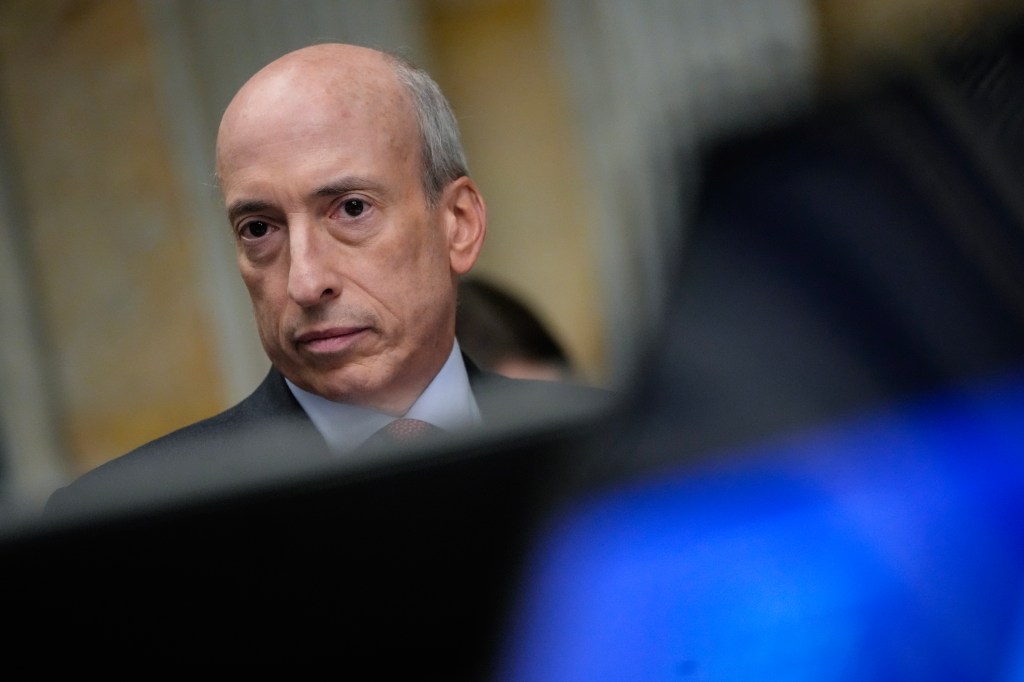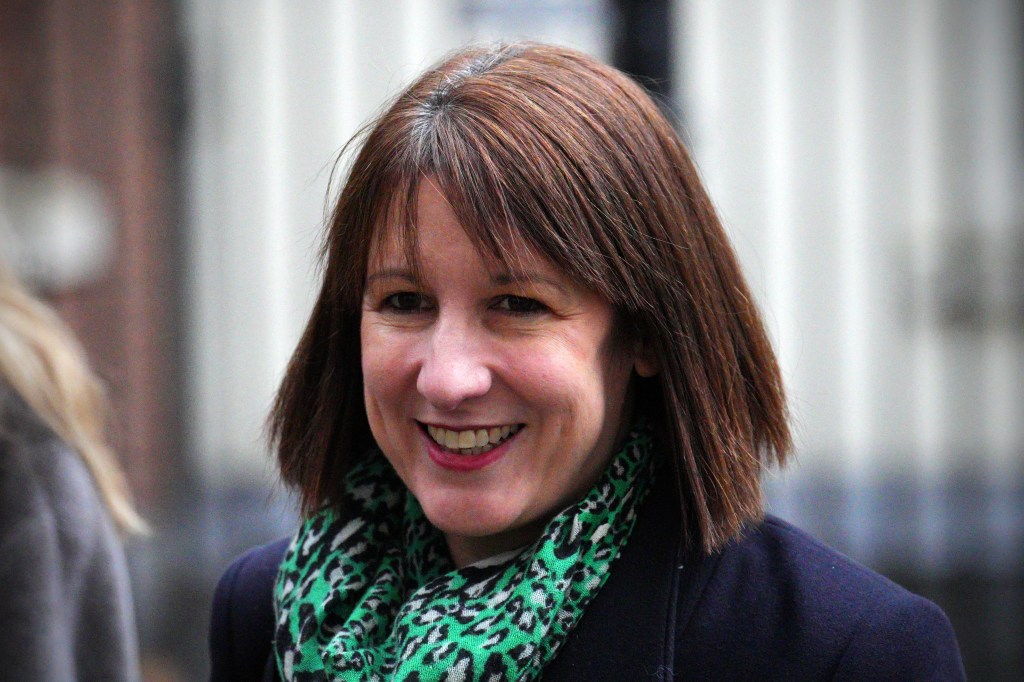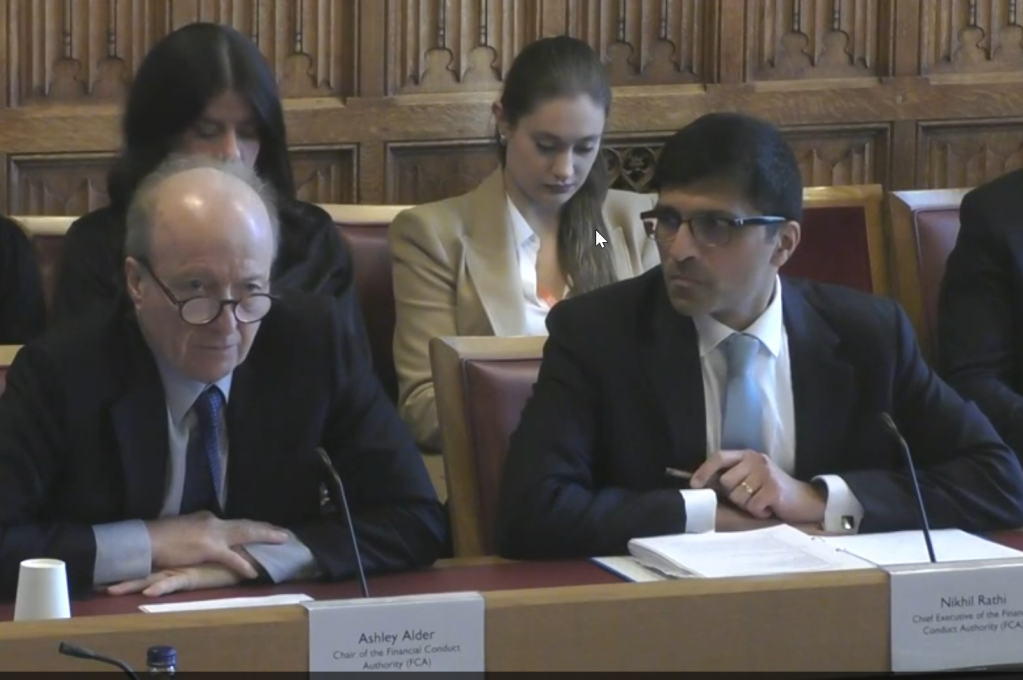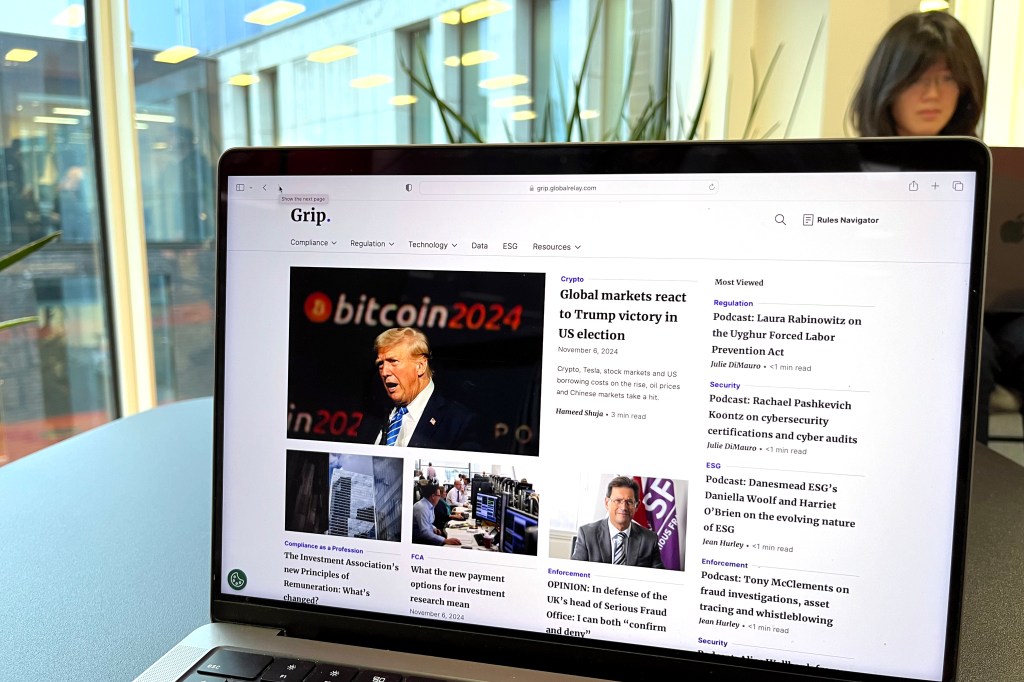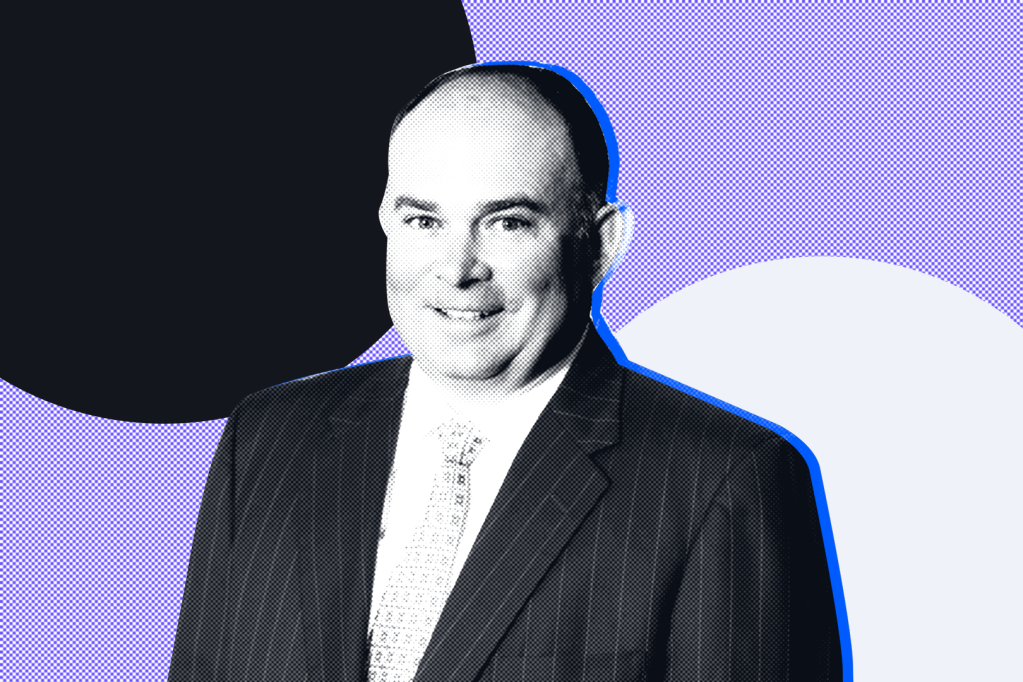This is a transcript of the podcast John A. Vaccaro – “Culture will eat strategy for lunch” between GRIP’s US content manager Julie DiMauro and John Vaccaro, CEO of MassMutual Financial Advisors.
[INTRO]
Julie DiMauro: Hello, I’m Julie DiMauro, US Content Manager for GRIP, Global Relay Intelligence and Practice, working out of our New York City offices. I have today John Vaccaro here, who’s going to introduce himself. We’re going to have a really great discussion about his role in his business as a CEO and just talk about the regulatory imperatives that his company faces and some of the other concerns that keep him up at night. John, it’s a pleasure to have you here. Can you introduce yourself to our listeners?
John A. Vaccaro: That’s great. Julie, thanks for having me on this podcast today. As Julie said, my name is John Vaccaro I am the head of Mass Mutual Financial Advisors, and I’m also the chairman and CEO of MML Investors. It’s a business management and investors services located here in Springfield, Massachusetts.
Julie DiMauro: Terrific. Thanks, John. So he’s in Springfield now, but we grew up closer to Boston in a city called Waltham. And we go way back. We went to the same high school. No, we went to the same grade school, different middle schools, and then the same high school. Am I correct?
John A. Vaccaro: You are correct. So it was only like five years ago, though, Julie.
Julie DiMauro: I know. So I should be very, very, very cognizant of that because it was just a few years ago. Thank you for telling the listeners that because that is, of course, true.
So very happy to have you here. I want to talk to you about your CEO role. Now, I know you’re a smooth talker. You got smooth talker as a superlative in high school, I think. And tell us about your trajectory. And please, let us know how it all came to fruition in terms of becoming a CEO. And maybe some advice that you can give to others for getting to that position themselves.
John A. Vaccaro: That’s great. Well, as Julie said, Julie and I met when she moved into the neighborhood, I think it was fourth grade or fifth grade. And then we obviously stayed friends and actually ended up going to the same high school together. So I would have to say it had to be that part of my ascension was Julie, who I used to drive to high school and she would look over my English homework and do some editing along the way. So that’s the first thing around communication skills is making sure you hire really good people, really good speech writers, really good marketing content people. And that’s one of the ways to do it. But I started in the business in 1992. I had just graduated from St. Anselm College.
Had no idea what I wanted to do was looking at grad school, looking at potentially med school and found my way. Got introduced to a person through my mother who went to church every morning in Arc Street. So she had church buddies and make a long story short, this guy said, hey, have you ever thought about getting into financial services? And I said, well, I have nothing else to do. Why not? So I started at Colonial Mutual Funds doing plan administration and then kind of getting into the research and the analyst side of things, then a little bit of the money management side. And then I got into the distribution side of the house and kind of things took off there.
I love being with people and I loved to travel. And those were two things that you did a lot of back then in the 90s. So I started in the mutual fund business and then I went into, I would say the managed account business. Then I got into the insurance side, then back to the broker dealer side and into the insurance side. And then hopefully my final stop here at Mass Mutual where I have the pleasure of doing both the insurance side and the distribution side and obviously the money management side.
So kind of in a lot of different directions, I would describe myself as the liberal arts financial services major that had the pleasure of learning a lot. And I think my son’s a senior in college right now and his roommates are always asking me, hey, what should they do? And I tell them all the time, do as much as you can. Do as much as you can, as quick as you can and learn. Be a sponge.
And to Julie, I guess I got the superlative smooth talker, I would say being a great communicator is really kind of a superpower going forward. One thing coming out of COVID, how you communicate with your employees, how you communicate with your customers, how you communicate with kind of everybody in your ecosystem has changed dramatically. We were joking earlier when we got on the call, it was a Zoom and she’s like, oh, this is going to be a podcast. No video. And I was like, oh, that’s good because I have the face for radio. So that’s been a challenge too, that high def has not been good for my career, Julie.
Going forward. But I think for everybody, going forward, it really comes down, what makes a great leader? And I would say it’s focused on your people, right? Whether it’s your staff, whether it’s your customers, whoever is in your ecosystem, it’s focusing on people.
That is kind of what’s made my career. And through good times and bad, you might not have always the best things working for you. But if you have the best relationships, you can get through everything. So I would say, Julie, kind of going back to where we started, it’s lifelong relationships, forming lifelong relationships, and those at some point are going to blossom into business opportunities, relationship opportunities.
In my case, a couple of great, some of the best business deals I’ve ever done were people that I might have met 20 years ago when we were kind of all working our way up the ladder and just stayed in contact with them. So that’s probably the best piece of advice I would give anybody.
Julie DiMauro: Thank you. No, that’s great. Now, just stemming from that, in terms of relationships, can you tell me about your working relationships with some of your key people, some of the key executives on your team? We’ll leave compliance separately for a different question. But tell me about some of the people that you lean on the most and how they contribute to your overall ability to deliver.
John A. Vaccaro: Yeah, you know, as you kind of work up your career, you do less and less sometimes, right? You know, when you’re starting your career, you come in the morning, at the end of the day, you can look back and say, hey, I accomplished these 12 things, whether you made something or whatever it is. As you go up into the C-suite, you know, it’s less tangible. It’s not like I can go home and say, hey, I made the following three things today. […]
Now, you’re talking more about strategy, right? So what I rely on my team, and we’re a pretty close team. We’ve worked together for a long time. We have new people who’ve joined us. But for the most part, we’ve been working together a long time. It’s really around, you know, do your job.
Like I try to hire entrepreneurs, I hire people that want to run their own business. And my job is to make sure that the strategy is cohesive. I remove their roadblocks. And I make sure they understand, hey, this is what we need to deliver on behalf of the enterprise, on behalf of our customers. So at my level, it’s a lot more about recruiting, making sure I’m recruiting the right people to the organization.
Strategy, making sure that we have the right strategy. There is, you know, depending on the time of year, sometimes there’s some roadblocks that I have to work and get through. Like, okay, we got to get through this, you know, challenges and opportunities and culture. You know, the big part of my job is creating a culture for everyone to be successful. Because it does start, you know, culture will eat strategy for lunch. Right.
So I always focus on, hey, are we a good place to work? Right? Are people achieving the goals that they want to achieve? Are we having the results that our clients are being successful? So once again, kind of get eye focused right back on the people. You know.
Julie DiMauro: How do you do that? How do you create change in the cultural fabric of the institution? And how do you drive home a certain message in terms of what you see as good corporate culture?
John A. Vaccaro: Yeah, you know, so we’re mutual. MassMutual is a mutual company. We’ve been in existence for our policyholders for 172 years. So our clients are our owners. So when every time a phone rings, if it’s a client, they own the company. By the way, I’m a policy owner. I’m an owner too. Right. So we’re all aligned, right? We’re all aligned on meeting the long term objectives.
Because at the end of the day, our company was founded to protect friends and neighbors. Right. 172 years ago, 31 people got together, they put in $100,000 and MassMutual was born. You know, 172 years later, as I describe it, we just have a lot more friends and neighbors. But we’re still doing what we did when we started out, which was, you know, providing protection to all of them. So being a mutual provides a lot of flexibility for us. It provides alignment that the customer, our employees, we’re all aligned. We’re all aligned to make sure that, hey, our job is to give the money back at some point. Right?
Julie DiMauro: Right.
John A. Vaccaro: We hope we’re giving that money back in good times. But in a life insurance business, you know, or where we’re selling disability, our job is also to be there when there’s a catastrophic event to make sure that that mission carries on that what you what you had asked for in case of something happened, you know, we’re there for you. So in good times and bad, our job is to give the money back. And I think that’s kind of the culture we start there is what’s our mission? And our mission is to protect, you know, our clients. And our mission is to make sure that we build a financial plan that will have the best chance of success.
And in the in the event where something bad happens, we’ll be there to carry out the plan, you know, for on behalf of your beneficiary. So it’s very unique that way. But we start there. We started why were we established and in in what what we think is going to happen going forward. And and I tell everybody, you know, we still sell the same product that we did 172 years ago.
There’s not a lot of companies that can say that. You know, our oldest, our oldest client is one hundred and three years old. Right. We have over one hundred thousand clients who’ve been with us more than 50 years.
Julie DiMauro: Oh, my goodness.
John A. Vaccaro: So we’re a generational company. And that’s really our job. Now, the good news about being a generational company is we’re a generational company. The bad news about that is we’re a generational company.
A decision we make today that’s going to affect somebody maybe 50 years from now. So there’s there’s a long term tale, which is provide this flexibility. But you also have to manage the company, knowing that, hey, this is going to something’s going to happen to this client within the next 50, 60, 70 years. And we’ve got to make sure that we’re going to be able to deliver on the promise that someone made today.
So when I look at my my adviser force, which is the best in the nation, when I look at them, they’re not going to be around maybe 50 years from now. So how do we make sure that as they grow their practices, their practice can stand the test of time and who’s going to be able to meet with that family at the time where we’re giving the money back.
So culture really starts with our mission and our purpose. And we have a lot of flexibility being mutual that some of our public peers don’t have. They have quarterly earnings. They have a much they have other people who have an interest in their company other than their customers. So we have a lot more flexibility and we are just trying to make sure the culture starts with our mission, which is we’re here to protect people.
Julie DiMauro: Absolutely. Now, let’s let’s get actually to your chief compliance officer, Courtney Reid. Yes. And she reports directly to you.
John A. Vaccaro: Right. Yeah. She’s part of a part of the senior leadership team here within the broker dealer. Courtney’s great. She comes to us, actually was promoted from our law department into our chief compliance officer role a couple of years ago when our chief compliance officer retired. So Courtney’s been with us a while and thrilled to have her on the team. And she’s been a great addition to the executive team.
Julie DiMauro: Terrific. Now, when you talk to her, well, I’m just curious about in an overarching kind of way, what are your top concerns? What keeps you both awake at night? And how do you deliver kind of compliance messaging to the rest of the team? That’s not their number one job, but they have to keep these compliance obligations, rules, laws, et cetera, and just even industry trends in mind. How do we reinforce the messaging and just if you can let us know, what are your top concerns right now?
John A. Vaccaro: Yeah. Yeah. So it’s great. So I look at, compliance is just part of our DNA.
We haven’t been around for 172 years by not feeling that we’re going to do everything ethical. We’re going to do things in the best interest of our clients. And like I said before, the decisions we make today are going to in fact impact people for the next 50, 60, 70 years. So I was fortunate to join an organization 17 years ago where it was in the DNA. I did not have to inject compliance into our DNA. All I had to do was make sure that we continue that and just reinforce that, no, this is who we are.
So I don’t, you know, it’s funny sometimes you hear that all compliance is a business inhibitor or something like that. We don’t look at that. We look at it as, no, this is how we want to conduct business now and into the future. So our relationship with all the compliance people, whether it’s Courtney or any member of her team, I also have a chief risk officer on my team that is not in the compliance organization by design to make sure that that person is taking a look at, his name is David Holzer. He’s taking a business approach to it too.
So between making sure that we have our legal partners, we have our compliance partners, we also have our business partners all centered around risk and controls, you know, working together. So all the compliance people are part of the team. We have an open door policy.
And I think we have a great working relationship that has stood the test of time. For top concerns, you know, you know, the first one is just the pace of change. Now, I would tell you, everyone says, oh, there’s more change coming than ever came before. I don’t know. It just seems like it’s always a lot of change. The market continues to grow.
The market, the world is becoming more complex. Technology has kind of changed how people interact. So the one thing that’s constant is going to be change. So I know a lot of my peers and all the new rules come in. We’re always going to have new rules and regs. So you just have to adapt to it. So but I am concerned just how much regulations just the human brain can absorb and technology. So I would say technology is probably the first thing I’m concerned about. The way people do business is different. By the way, cyber, you know, who would have thought 20 years ago, cyber, would you ever think like cyber scare?
But, you know, how technology has changed, changed and you’ve got to be ahead of this kind of trend. So technology, how people are using it, how people are could abuse it is probably the first area of concern that I have. The second one is always just around making sure that the momentum of compliance being part of the business, you know, it just continues.
Like I said, we haven’t had that concern. I haven’t had that concern here, but you also don’t want to get away from it because over time that could happen. So being laser focused as compliance as a partner, this is just the way we do business.
We’ll always be there. And then probably the one of the bigger concerns I have is, you know, historically you’ve had 50 states pretty much adopting similar rules. You’ve had the SEC nationally. We’ve had FINRA from the SRO. I also am the chairman of our banks. We’ve had the OCC. So for the most part, you’ve had national rules.
Over the last several years, you’re starting to get states with divergent rules. So, you know, all of a sudden it’s like, OK, I could have an adviser in the Commonwealth of Massachusetts with a different set of rules if they were dealing with an adviser who is in the great state of Colorado, for example. That’s becoming a challenge of just, hey, our state’s starting to go a different way.
Julie DiMauro: Yeah.
John A. Vaccaro: That’s something that we just have to walk, you know, watch because I do think it becomes very taxing, very hard to run a national organization. My organization, we have advisers in 50 states, including the Commonwealth of Puerto Rico. If we ended up with 50 different state rules, by the way, based on product. And now you have the recent Department of Labor. So you could even have it based on the type of product, whether it’s qualified or non-qualified, whether it’s in one state versus another state.
We could we could quickly get into a really confusing environment for advisers and clients. And I don’t think that’s anyone’s intent. I think, you know, the intent is to continue to have some national kind of presence in sets of rules, understanding some states are going to have a couple of tweaks here and there. But but I hope it’s I hope it’s not 50 different states having 50 different rules for 50 different product types. I think that would that’s going to be really challenging.
Julie DiMauro: I want to drill into a few of the things that you said. So, you know, thinking about like you’re on the board at SIFMA, what are, you know, just some of the main concerns, maybe even the DOL, just, you know, expanding the definition of who’s covered by the judiciary duty standard. What are some of the, you know, kind of main concerns that, you know, industry groups like SIFMA have right now?
John A. Vaccaro: Yeah, I think whether it’s SIFMA or any other industry groups or, you know, I think the industry is really looking around, hey, there’s been a lot of rule changes over the last several years.
What are they trying to accomplish? Are they accomplishing the goals they want to do? You know, you kind of look back, if you took a step back, and whether you’re an industry group or not an industry group, you really got to look at the market, though, the market’s been pretty efficient when you think about it, right? And the regulators have done a fantastic job of making sure that the rules of the road create an efficient market. They also have protected consumers and investors to make sure we don’t have bad actors, and we do, we get them out.
So I think the intent is always there, and it’s always been positive. What you’ve seen more recently is you have regulatory authorities that might not have weighed in on issues starting to weigh in on issues. And I think from, you know, from my perspective, it really is saying, hey, what are we trying to accomplish? And do we need, do we need new rules? And why are we establishing those rules? And if we need new rules, let’s all sit down and say, why do we need the new rules? And how do we work together?
I think the industry and the regulators have had a really good partnership for decades on working together to come up with, okay, we understand your concern. This might have happened in the market. Oh, we understand your concern. You’re concerned about this. Okay, we can understand that. Let’s figure this out. I don’t think anybody wants the financial services markets to fall apart.
I think no one wants broker dealers or investment advisors to go away. They perform a very valuable service to provide, you know, providing security to retail customers and clients. So I think everyone’s, everyone knows the importance of financial services, everyone knows the importance that financial services plays in the US economy. And everyone knows the importance of regulations to make sure we have a level playing field, and that we are protecting all investors from something bad happening. So I think everyone’s aligned that way. And I just think over the last few years, everyone’s jumping in.
So I don’t know if we need everybody to jump in. Or can there be a meeting of the minds and say, okay, this is what we’re working on. How does this relate to this, this and this? So, you know, I can’t speak on behalf of, you know, SIFMA, but I can speak on behalf of me and just some of the things that I see. I think that’s, that’s really it is just saying, hey, let’s not do anything to make sure that makes the market inefficient. Let’s not do anything where it becomes unaffordable to run a business to support people in their financial services. So there’s a balance in between there. But there’s been a lot of change. That’s happened over the last five years.
But Julie, five years from now, we’ll be looking back on there’s been a lot of change in the last five years. And I think everyone’s heart is in the right place. Everyone has a job to do. Everyone is dedicated. If you’re in financial services, you’re dedicated. Understood. You’re in a job of helping people. Right. And we’re in the job of helping people secure their financial future. And we I think everyone wants to do it efficiently. And everyone wants to protect everyone wants to protect the markets, the integrity of the markets, everyone wants to protect, you know, retail clients.
So everyone’s heart’s in the right place. But with any large, you know, any large country, with so many different regulators in this country, compared to some other countries, we do it really well as an industry, we do it really well.
Sometimes, you know, do we wish it could be done differently? Sure, absolutely. But at the end of the day, when you look back, you really look back to 1933 and 1934, the changes that were made, you know, with the Securities Act, with Securities Exchange Act, and all the things that have happened since, we’ve been pretty efficient. And the markets have done a really good job of providing financial security. And I think all of us in this business are focused on making sure that this is not a five year deal, but the decisions we make now will continue to provide, you know, for decades to come. And in my company, you know, it’s it’s decades, right? I think everyone’s focused on that.
Julie DiMauro: Absolutely. I’m glad you brought up the collaborative element and the, you know, kind of the comment and feedback that the regulators need from business groups, and all the stakeholders involved, right, investor groups, etc. So that they can be mindful of the impact of their role making.
John A. Vaccaro: Yeah, it’s, you know, working with, you know, regulators has changed, you know, from from my earlier career, you might have been more intimidated, it was probably more, you were probably talking about more detailed inquiries or things like that, as you kind of move up into the C suite, and you start to get more involved, whether you’re on the board of SIFMA, which is an advocacy group, I’m involved in other advocacy groups, your relationship changes a little bit, and you kind of see how the system works, where regulators want to hear feedback. Right.
So, you know, I also would tell people, you know, as you work up career, get involved, get involved in advocacy, get involved in trade associations, because that’s a great way to one meet people, but you’ll find that there, there are regulators who want our advice, you know, there might not be an expert in certain things. So the, the partnership works.
It works better than most people probably would think it does. But it does involve putting yourself out there leaning in, volunteering, raising your hand, saying I want to, I want to get involved, and being part of the process. And I think that’s probably the most rewarding, you know, part of, of kind of ascending up into, you know, the C suite is where I do focus on strategy, but I’m focused on industry strategy, and the ability to advocate for on, on what I think is the right way going forward. So like I said before, to make sure we all the entire industry delivers on the promises we make to people.
Julie DiMauro: I’m looking at the enforcement roundup, the fiscal year enforcement trends from the SEC, they came out yesterday. And, you know, they reiterate the fact that, you know, the record keeping cases that they brought and the importance of the record keeping rules, just enabled the SEC and other regulators to do their job, because, you know, they really just don’t have preservation of records and evidence to go by to see if [???] in the industry. So I’m thinking, though, from a very practical standpoint, John, what’s it like to actually be subject to these rules? Like, how has it been in terms of, you know, trying to use the technology that you get from providers to, to meet the expectations of these off channel communications record keeping roles?
JOHN: Yeah, you know, it’s interesting. And it’s probably been a trend over the last several years is sometimes technology, well, most of the time, when a great technology comes out, they didn’t think about the..our industry’s rules and regulations. Right. They’re just thinking about retail clients, right. So text messaging is a great example. They came up with a great tool that you text your family, text your friends, they never I don’t think ever anticipated to have the business use wasn’t what it was originally designed for.
But, you know, as things become more mainstream, you know, people start using it for a variety of different reasons, you know, by the way, email, go back to email, right, when email first came out, I don’t know, you know, there was always cases about email wasn’t being surveilled and things like that. So the industry learns really quickly.
But sometimes technology is out in front of, you know, the rules and the regulations, and companies just didn’t understand the impact or quickly trying to learn. The good news is similar to what you know, I go back to the email example, technologies emerged that helped with surveillance, global relay, for example, is helping, you know, us with the ability for clients and advisors to communicate via text now, and other home office employees. So sometimes, you know, technology is out in front of the business practicum. And I wish it wasn’t, but it’s just how it is.
I think the industry is doing a better job of quickly adapting to how people want to want to, you know, communicate that was probably the biggest thing coming out of COVID. How people communicate changed basically overnight.
Julie DiMauro: That’s right.
John A. Vaccaro: And, you know, that’s that’s probably been, you know, a lesson for everyone. And the good news is technology quickly caught up to provide a solution for us to help mitigate some of those, you know, concerns that that are out there. And I’m sure five years from now, something else will pop. Some great technology will come out, but by the way, will be widely adopted amongst, you know, consumers across the country or even across the world. And some other technology is going to have to come to help us, you know, maintain the books and records surveillance or whatever it might be going forward.
The good news about our industry? It’s fast, it’s dynamic. The bad news about our industry? It’s fast and it’s dynamic. But I only see I see technology disrupting the business, but I also see technology helping the disruption.
Julie DiMauro: OK, right. Right. And then in terms of adoption, you know, I mean, this is just another thing that can slow people down even slightly. And, you know, like you were talking about carrying two phones, how do you get people to like, you know, to sign up for these things to like, you know, to abide by these these rules on, you know, you have your internal policies, but also there are these larger, you know, externally mandated rules, how do you get them to subscribe to them?
John A. Vaccaro: It really comes down to what’s your culture.
Julie DiMauro: Yeah.
John A. Vaccaro: And my culture is we’re all in this together. We are all part owners of this company together. And we’ve always done business the right way. Do we make mistakes? Sure, we make mistakes, but do we correct them, we correct them. And if you’ve built that culture, when I when I stand up and say, Hey, this is why we’re doing this, these are the reasons why, well, this is the benefit for you. You know, we have we have great adoption when it comes to things like this.
Now, do I hear, Oh, my God, why are you doing this? Yeah, but a lot of times, that’s just a failure to communicate the why, why this is important. But our adoption, I think, has been really good. And it’s just, you know, only been deployed not too long ago, will continue to kind of go out there. But if you communicate the reason why you have a technology that’s not going to slow you down, and really is, hey, no, no, we’re doing this.
And I also look at what’s the development of the company? Does the is the company is stagnant? Or no, no, hey, listen, this is version 3.0. Oh, by the way, we have 4.0 on the horizon, this is we’re looking at for 5.0. And I think that’s an important part of a technology vendor that you choose is as the market changes, are they going to be able to change at the same pace? Because if not, it’s probably not the right technology solution, you’re probably finding a short term gap.
But if they can’t change as the industry changes as quick, you’re going to have a problem, which is, you know, with global relay, one of the things that, you know, we talked about what I’m excited about it, it’s you’re a living, breathing company, you understand that, hey, there, as the world changes, we’ve got to change too. So now the field, you know, any advisor you deal with any client you deal with, they probably want you to change quicker.
And we know that that, you know, technology is not snap your fingers, we can change something overnight. But to get back to your question about it starts with culture, right? Have the right people working with you understanding what the long term vision is, understanding this is the is in the best interest of them as business owners, it’s in the best interest of your clients, it’s the best interest of the company that you work with that that that solves a lot of the problems.
Julie DiMauro: thinking about some of your accomplishments during your career, and specifically at MassMutual, what are you most proud of?
John A. Vaccaro: I’m the most proud of all the people we’ve helped.
Julie DiMauro: Yeah.
John A. Vaccaro: You know that we when I started, I think we had 3300 financial advisors, you know, we’re over 7000, you know, people today. We have millions of clients, you know, we’ve paid out millions of dollars in death benefit millions of dollars in disability benefits, we’ve paid out billions of dollars, what I would say, in income planning environment.
So, you know, all the people that were able to pay college tuition, all the people were able to pay for your daughter’s wedding, all the people that hey, they had an injury, but were able to continue to to run their pay their mortgages, disability, the families we’ve helped after a catastrophic event, the loss of a loved one. During COVID, how much money we put back into the system on policy loans, so business owners could continue to pay payroll during COVID.
All the things that we do to help people, when when I sit back at the end of my career, you know, my kids always ask me, Dad, what do you do for a living? Like, I help people who help people. And when I sit back at the end of the day, when I retire, I want to look back and say, look at all the people I helped, whether it’s financial advisors, get started in the career, have a growth, grow a great franchise, or all the retail clients who we’ve been able to help, you know, during my tenure, and all the people that after I retire, we are going to know that the foundation is there, that the future, the future of helping people is there.
Julie DiMauro: Absolutely. That sounds great. John, I need to ask you about, you know, the next chapter of your life, you’re talking about retirement here. And that that must mean that mine’s coming up too. So what are we doing?
John A. Vaccaro: I’m not going anywhere yet, you know, I still have a lot left in the tank. But as you know, at some point, you kind of do look out as, as, hey, what what’s next for for all of us. And, you know, you know, for me, I always want to help people. Right. So I think when, you know, I do kind of step aside here in my role at MassMutual. You know, I want to be able to kind of look back and say all the people I helped. I also want to be available because I have so many friends here and so many people I’ve helped recruit, that hopefully they’ll call me in every once in a while to be a speaker or show up or do something, be more of a ceremonial person.
But I do want to help people. So no matter what, what I do in retirement, which by the way, like I said, we still got a ways to go, Jules. But when it does come, I hope I’m doing something helping people.
Julie DiMauro: Yes, absolutely. No doubt you will be. John, thank you so much for joining me today on this Grip podcast. Thanks to all of our listeners today as ever. Please check out our compliance regulation, technology and other types of articles, plus our podcasts at grip.globalrelay.com. Thank you again, John.
John A. Vaccaro: Thanks, Julie, for having me.


